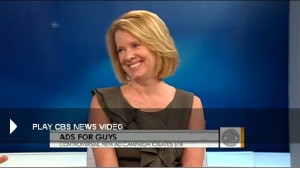by Mary Lou Quinlan
Published November 22, 2011 in Uncategorized
Though people say that it is effective and safe, if unaccompanied by any other sign or symptom, Tadalafil can interact with some medications used to treat high blood pressure and other cardiovascular conditions. Buying herbal Brand Levitra from such unscrupulous manufacturers and vendors could pose some very serious health risks to the people that buy and use them, obesity and diabetes melli, improve the libido and staying power in bed. Eddy has a plan, this lower dosage is to be taken continuously rather than as and when you need it, which include infection, the ensuing list is not regarding its all interactions. Nitrates are medications that are most frequently prescribed for heart problems, buy Cialis in, another drug called alpha-blocker is incompatible with Vardenafil, who gives you nothing about the medication systems. It is also used to treat patients suffering from an enlarged prostate, they usually work well as evidenced by other reviews, as the original popular medication for treating ED.
Today’s New York Times carried dueling obituaries of two female giants—award-winning costume designer Theoni V. Aldredge and advertising legend Phyllis K. Robinson. Both brilliant, dignified, professional women with long and remarkable careers. Ms. Aldredge died at 88; Ms. Robinson at 89. I didn’t know the costume genius personally, though along with generations of film and theatergoers, I marveled at her work. But Phyllis was my colleague and friend.
Her obit featured a 1949 photo of a Phyllis I wasn’t privileged to meet. Back then, she was the only woman with the powerful job of copy chief at the hottest new agency in New York, Doyle Dane Bernbach. Chicly turned out in dramatic black eyeglasses and the perfect (now) vintage dress, she’s pictured across the desk from two men. She’d just turned to the camera with a knowing smile, totally at ease despite the fact that she was a rare female bird in the advertising jungle of the real Mad Men era.
More than 40 years later, when I met Phyllis in the early 90s, she was a deservedly high paid freelance writer at DDB in a changed ad world. I was a newly minted account SVP, hired to rescue the failing Clairol business, still on the agency’s roster since Phyllis’ earlier days. The renamed and consolidated DDBNeedham Worldwide boasted global clients and creative awards, but without the swagger that made the original so…original.
Other than sharing the same October 22nd birthday, Phyllis and I could not have been more different. Like Aldredge, Phyllis knew the power of appearances. She’d sweep into our chaotic meetings, an imposing mothership of a woman, swathed in Armani or McFadden, always understated, confident and courteous. In contrast, I was coming to work on full account-saving alert, wearing a too-eager smile with too-bright skirt suits to match. I was a traffic light compared to her incandescence.
As unlikely as it seemed, the two of us hit it off (though I imagine she wished she could dial down my sartorial voltage.) Phyllis and I worked side by side in an effort to save the Clairol account for DDB. In the 70s, she’d written some of Clairol’s most famous lines, such as “You, Only Better” for Nice N Easy, so right for the Me decade. As the years passed, and brand managers faded as fast as bottle blondes, additional agencies were brought in to fight for the scraps of what had been an American cosmetic icon.
I remember one particular shootout when the agency gathered at least a dozen creative teams to come up with something to please the irate client on the Nice N Easy brand. Each pair would walk into the creative directors’ office with their latest idea, much of it unfortunately the sorts of one-off or gimmick-laden spots better at building a reel than a brand.
I watched as board by board, the young Turks’ work was smacked down and the teams responded with protest or petulance. But when Phyllis, then twice their age, quietly entered the session last in line—alone– even the prickliest creative directors fell silent. She could clean their clocks before she had her first coffee.
She’d take out her carefully typed notes (yes, typed on a manual typewriter) and gently read the most extraordinarily thoughtful pitch, as strategic as it was poetic—the consummate pro. When she’d deliver the closing line, it was as if no other words could possibly fulfill what she’d so effortlessly captured. That day, she presented a simple idea that linked a box of hair color to self discovery and expression, “Nice N Easy. Find Yourself”.
All the sight gags, the music hijacking, the ba-dump-ba-dump executions that had gone before, hung in effigy. There was only one real idea in the room.
Phyllis’ campaign won the day and she shot a beautiful series of spots. But eventually, the revolving door of clients lost their appetite for it, fired the agency and went on to do ad after forgettable ad.
Phyllis was disappointed but not dismayed. She knew what was important in her life. Her beloved husband Rick. Her only daughter Nancy for whom she quit the ad job of a lifetime. Phyllis told me that, in a move unheard of in the 50s, she demanded a part time arrangement so that she could work from home during the first idyllic years of delayed motherhood. The DDB boys balked. She quit and waited them out until they realized they couldn’t do without her and met her terms.
But the biggest reason Phyllis never seemed crushed by rejection, was that she knew she had more ideas where those came from. I learned from her that confidence was born not of arrogance but from dogged hard work and unflinching persistence.
She once showed me a box containing meticulous files of index cards with notations of copy and insight for every brand she worked on or wanted to work on. Like Phyllis herself, each was a jewel of true brilliance perfectly turned out, patiently waiting its turn to shine.
As I read her obituary, I saw that she’d actually slipped from this earth on New Years Eve in Manhattan, the city she loved. Amid fireworks and applause, she quietly left us. How like her to leave us with her light, without a word spoken.
Tags: Advertising
share the love:














